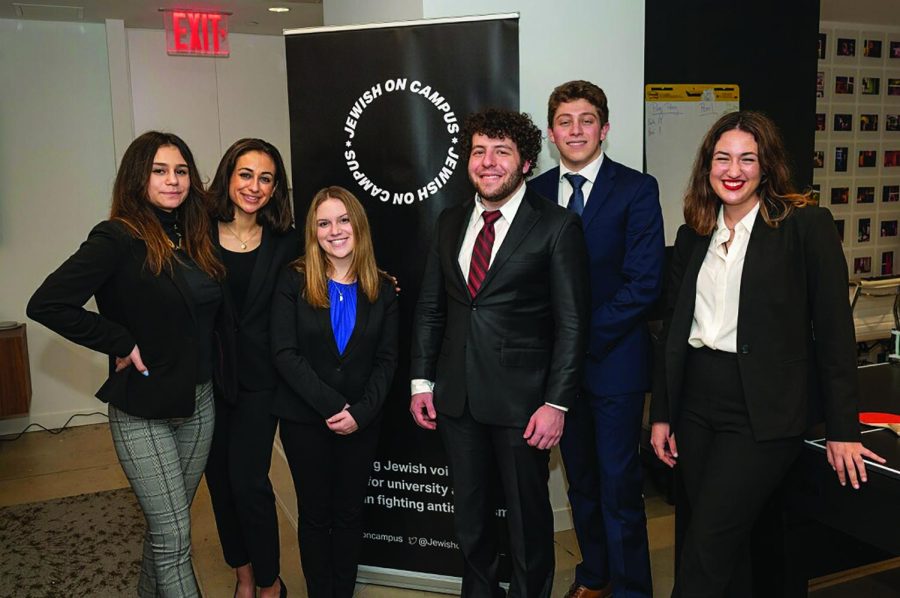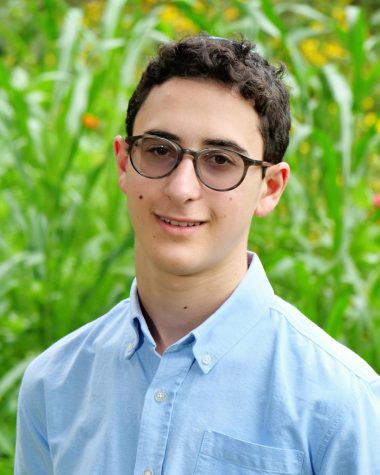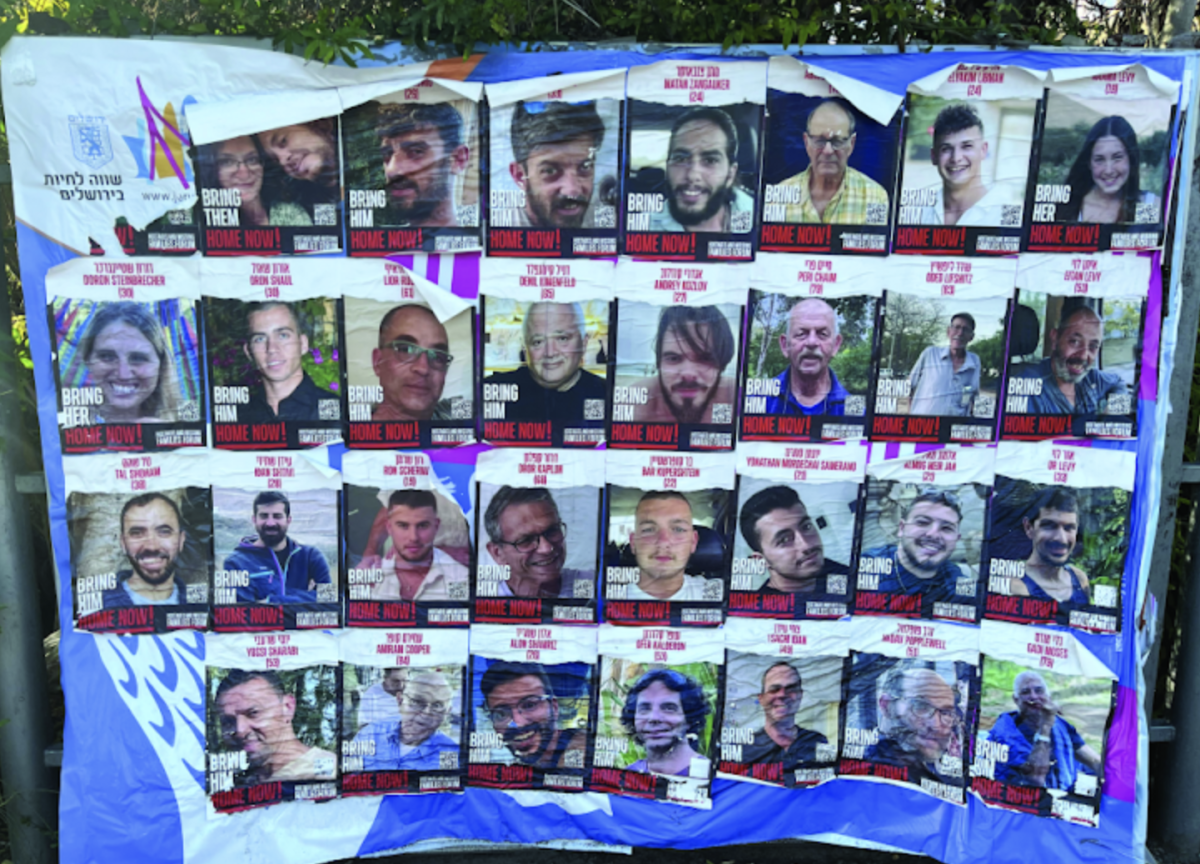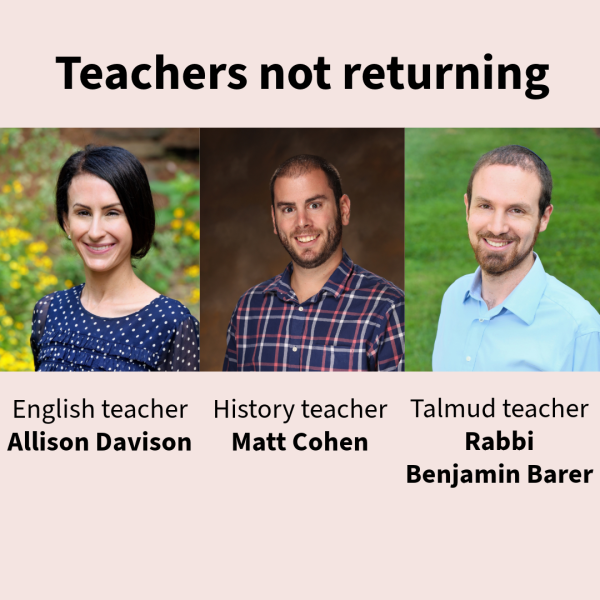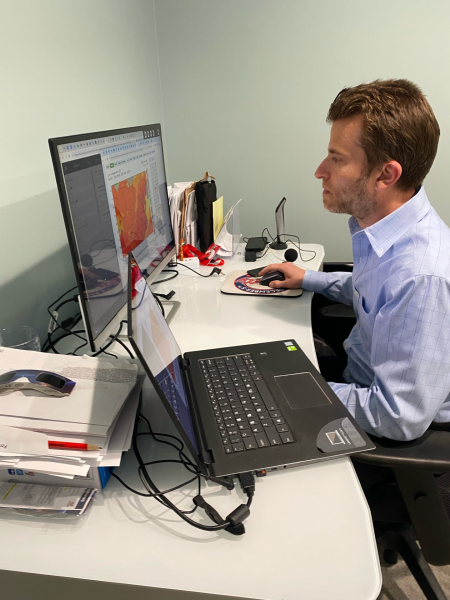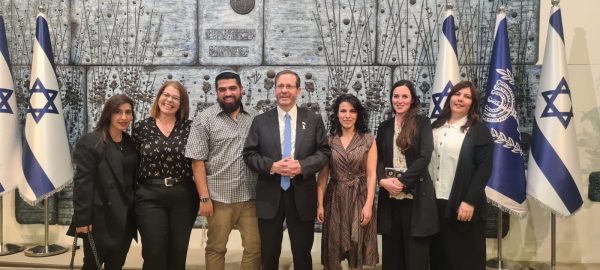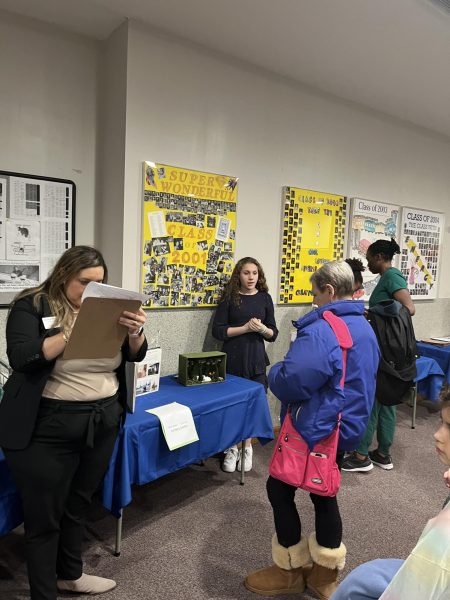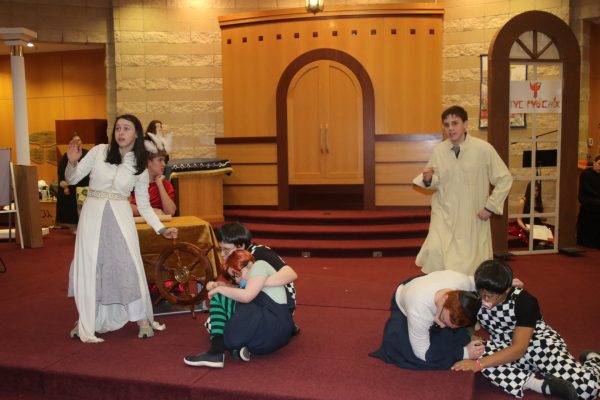Opposing antisemitism
After Jewish day school, alumni examine being Jewish in college
Photo used with permission of Shahar Azran
The Jewish on Campus C-Suite traveled to the World Jewish Congress New York Office to discuss their partnership.
December 16, 2021
One Saturday night sticks out among the many college memories of Tufts University sophomore Micah Gritz (‘20). An unfamiliar student approached him and asked, “You’re a Zionist, right?”
“Okay, and?” Gritz replied.
“Okay, that means you kill Palestinian children,” the student said.
According to Tufts Hillel, the school has a Jewish population of 17%. Gritz grew up in a predominantly Jewish community. He celebrated Shabbat every week, hosted Passover Seders and felt very connected to his Jewish heritage. However, even before his freshman year of college, he realized that he was going to have to defend his Jewish heritage against antisemitism in college.
“Before I even got to campus, there was a first-year GroupMe chat so that all the first-year students could get acquainted with one another,” Gritz said. “… [One of my friends] mentioned that he was Jewish, and the immediate response was, ‘Okay, so Israel or Palestine?’”
Gritz said that much of the antisemitism on campus is intertwined with anti-Zionism. Before he got to Tufts, there was push back from the Jewish community against a class called “Colonizing Palestine.” Another time, one of his professors showed a cartoon in class portraying Israel as a classic antisemitic Jewish caricature with a big nose and juggling nuclear weapons.
The relationship between antisemitism on campus and Israel is clear, as according to a poll done by the Louis D. Brandeis Center for Human Rights Under Law, over 80% of openly Jewish college students support Israel.
Gritz feels that a lot of antisemitism on campus comes from a lack of education, not malicious intent.
“I think there’s a ton of misunderstanding as to what antisemitism actually is here both on the administrative level and on the student body level,” Gritz said.
After his experiences with antisemitism on campus, Gritz wants Jews to be educated on the topic. While he appreciates CESJDS’s one-hour senior workshop about antisemitism on campus, he believes that there is still more JDS should do to educate their students about the hate and prejudice they might face in college.
“I heard personal accounts from [Jewish History Department Chair Aaron] Bregman and other teachers, but I wouldn’t say I internalized that I would actually have that first-hand experience,” Gritz said. “I think it might be helpful for current college students who went to JDS and are JDS alumni to possibly come in and speak.”
Tufts freshman Alex Landy (‘21) thought JDS classes on Israeli history helped him prepare for antisemitism on campus. However, Landy thinks that JDS could inform more students by mandating the History of Arab-Israeli Conflict class.
“I’ve always said that I think that the course on the Arab-Israeli conflict should be mandatory,” Landy said. “… I think it’s a really necessary course because we’re all being catapulted into a world where we’re not going to be used to this Jewish bubble that we’re currently in.”
George Washington University senior Ari Feuer (‘18) believes that JDS has done more than enough to prepare its students for life beyond high school.
“JDS and other institutions, they fear-monger a lot and say being a Jew in college can be so hard and so terrible and you’re gonna have to defend all this stuff. No. That didn’t happen, and that hasn’t happened once,” Feuer said.
Feuer’s lack of antisemitic college experiences may stem from his avoidance of Arab-Israeli conflict discussions. In contrast, Gritz has not shied away from the conflict and therefore is no stranger to antisemitism on campus.
The hostile environment that Gritz witnessed on campus made him realize that he needed to find support. His problem was that he didn’t know where to look.
“It felt like I didn’t actually have support from any of the major Jewish organizations, and I didn’t know who to reach out to on campus,” Gritz said. “I ended up talking to several Jewish students, and they were at a loss too. Then, I remember finding Jewish on Campus (JOC) back when it was just an Instagram account.”
JOC is a student-run organization that works to amplify the voices of Jews who have been victims of antisemitic attacks on college campuses. It started a couple of years ago as an Instagram page (@JewishOnCampus) and has since grown into an organization that collects and analyzes data about campus antisemitism, and uses it to educate students and administrators.
Gritz reached out to JOC via a direct message on Instagram saying that he wanted to use their platform to advocate for the Internation Holocaust Remembrance Alliance (IHRA) definition of antisemitism on college campuses. They replied and told him that they would be happy to work together and that they were working on becoming a non-profit, not just an Instagram account.
Gritz then began working with JOC, and worked his way up the ranks, now serving as the Chief Operating Officer.
Landy is also a JOC member. While he has not witnessed antisemitism directly, he is aware of people on campus who are not open to or respectful of his Judaism and has adjusted his behavior around those people accordingly.
“One of the big differences has been how comfortable do I feel talking about my Judaism and my customs with people who I might not be familiar with,” Landy said.
Landy is not the only one who has at some point felt the need to conceal their identity on campus. According to the Brandeis Center poll, about 50% of openly Jewish students have felt the need to hide their Jewish identity both on campus or virtually on Zoom.
Landy is currently a part of the JOC ambassador program. As a JOC ambassador, Landy works with peers to draft proposals for college administrations and tries to pressure the administration to address antisemitic incidents.
“One of the things I’m working on is to try and instill a policy here that will allow Jewish students to feel comfortable in their environments, in the classrooms and on social media,” Landy said. “I think that starts with how the administration responds to these incidents.”
For the administration to respond to antisemitic incidents, they must first be reported. According to a survey conducted by College Pulse for Hillel International and the Anti Defamation League, most victims of antisemitic attacks do not report it. Only 37% of victims who experienced attacks involving property damage, defacement or vandalism reported them, only 24% of people who were called antisemitic slurs and comments online reported them and only 23% reported incidents when they occurred in person.
According to Gritz, people need to speak out when they encounter antisemitism because strength in numbers is key. Without the actual stories of antisemitic attacks, the rest of the world is unable to understand just how problematic the situation is for Jews on college campuses.
Gritz hopes to see the next generation of Jewish college students tackle this issue head on. Dealing with antisemitism is nothing new to American Jews, but students can dispel this hatred by sharing their stories.
“Don’t be afraid to stand up for what you believe in, and share your story,” Gritz said. “I think that a lot of the time people don’t know who to come to when incidents happen. Organizations such as JOC are here to uplift your voice because when we just keep it to ourselves, no one knows what’s going on.”


